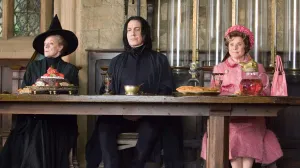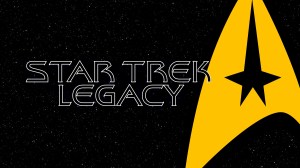When Star Wars: A New Hope debuted, fans didn’t have to refer to it or any of its sequels as the “Skywalker Saga,” as they were the only films within the franchise. The same was true of the prequel films, but when Disney purchased Lucasfilm in 2012 and confirmed it would develop films that weren’t an integral component of the narrative that had been depicted up until that point, the episodic films were then referred to as the Skywalker Saga. Following the reveal that the final chapter in the saga will be titled “Star Wars: The Rise of Skywalker,” fans began speculating about which individual this title could refer to, though another theory is that “Skywalker” will become what wielders of the Force refer to themselves as in the franchise’s future.
Videos by ComicBook.com
In the original trilogy of films, if you used your abilities to manipulate the Force for good, you were a Jedi, and if you used them for evil, you were a Sith. The prequel trilogy, however, introduced audiences to the Jedi Order which, like many organizations, had arbitrary rules and chains of command that applied to its members, leading Anakin Skywalker to grow frustrated with the group and leave it behind.
Chronologically speaking, the Jedi Order was almost completely abandoned during the events of the original trilogy, with even fewer individuals referring to themselves as “Jedi” in the sequel trilogy, despite their prowess with the Force. The most recent film in the series, Star Wars: The Last Jedi, even promised that these individuals were on the brink of extinction. Heading into The Rise of Skywalker, we can’t help but wonder if the Jedi have truly ended.
Luke Skywalker delivered multiple examples in The Last Jedi about why the Jedi Order must officially become a thing of the past, even attempting to destroy sacred Jedi texts. Yet, as evidenced by Rey and the Broom Boy seen in the film’s final moments, one doesn’t need to align themselves with the Jedi in order to use their abilities.
Despite not all of the members of the Skywalker lineage being beacons of good, like Anakin or Ben Solo, what Luke accomplished with his life is more than enough to inspire others to follow in his footsteps. Rey herself might not be a Skywalker, but if she chooses to avoid the trappings of the Jedi Order, she might embrace the name “Skywalker” to mean someone who fights for good in the face of evil, or any number of other courageous meanings.
With Jedi being forbidden from ever having romantic relationships and having to deny virtually all of their emotions, any former member would tell you that this comes with a loss of identity and agency. It’s possible that the saga will conclude with Luke’s objectives in The Last Jedi being fulfilled, in which he proclaimed, “It’s time for the Jedi to end.”
For decades, “Skywalker” merely served as a family lineage, yet with Rey’s parents being considered “nobodies,” it’s possible the Skywalker Saga will conclude by transitioning from the antiquated rules and regulations of the Jedi and instead introducing the idea that anyone, no matter what their heritage or how they honed their powers, could rise up and become a Skywalker, so long as they stood up to the forces that threatened to disrupt the peace of the galaxy.
Fans will find out more when Star Wars: The Rise of Skywalker hits theaters on December 20th.
Do you think the Jedi will officially end? Let us know in the comments below or hit up @TheWolfman on Twitter to talk all things Star Wars and horror!
—–
Have you subscribed to ComicBook Nation, the official Podcast of ComicBook.com yet? Check it out by clicking here or listen below.
In this latest episode, we cover the hype around Avengers: Endgame, argue if Game of Thrones is going to start going anywhere, and so much more! Make sure to subscribe now and never miss an episode!








